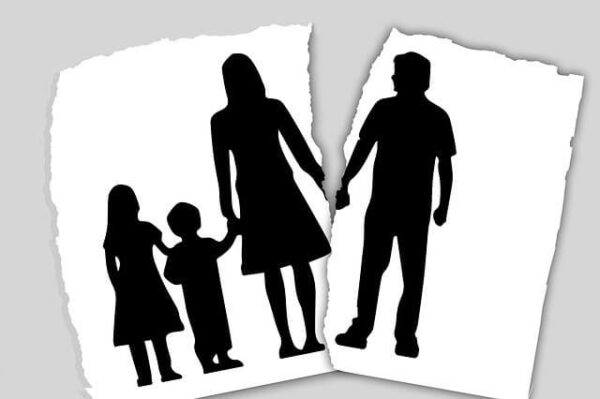Divorce is a difficult decision to make, especially when you realise that it is just the first of a million crucial choices you will have to make throughout the process.
Additionally, if you have children together, your relationship will always exist in some form.
Unaware that there are other options, a lot of divorcing couples employ attorneys right once and start the lawsuit procedure.
Unluckily, these couples frequently spend years in expensive court proceedings growing more irate, worried, and unhappy.
However, divorce does not need enduring this situation permanently. Albion Mediation Glasgow can be used in many different ways to reduce stress, costs, and time.
ADR refers to a range of formal and informal conflict resolution methods that frequently involve a third party who is impartial.
The most popular method for addressing issues around divorce is family mediation.
- What does “family mediation” mean?
A neutral third party, the mediator, assists family members while they talk about family conflict, which is frequently focused on divorce. Family mediation is a methodical, participatory type of ADR.
These disagreements could relate to property partition, child custody and support arrangements, etc.
The mediator will help family members communicate, deepen their understanding, and look for potential areas of compromise by highlighting shared interests.
The mediator will work with the family to find a mutually advantageous way to resolve their conflict and then help them formalise these agreements (usually drafted by a lawyer).
1.1 The Mediator’s Obligations
A mediator is a third party who is impartial and who will not represent either side in a disagreement. Despite being as neutral as judges, mediators cannot take their place. The mediator’s role does not involve making decisions. The decision to concur or disagree is totally up to the parties in conflict.
Instead, a mediator’s job is to help the parties find areas of agreement and remove roadblocks to a solution.
The mediator will specifically work to communicate each party’s concerns in an effort to foster communication and understanding while looking for areas of agreement that could serve as the cornerstone for a peaceful resolution.
The mediator will make sure that each participant gets an equal opportunity to voice their views in order to prevent the discussion from becoming too one-sided.
Importance of Mediation in Family Cases, Section 1.2
- Instead of relinquishing control, you and the other person retain full control over whatever decisions you make with your family.
- Mediation typically costs 20–50% less than litigation.
- Lessened tension – Mediation is based on cooperation and emphasises rapprochement. This doesn’t mean that the goal is to get back together with your ex; rather, it means that the goal is to restore your relationship so that any subsequent meetings can go well. This is not conceivable because litigation is adversarial in nature.
- Comparatively to traversing the numerous, intricate steps of litigation, mediation typically takes three to six months.
1.3. Various Forms Of Mediation
There are various mediation techniques. You may discover that one method works better for you and your family or that it is more in line with your long-term goals.
Setting more explicit expectations for your mediator and the entire process will be easier if you are aware of your options for mediation techniques.
- In facilitative mediation, the resolution is predicated on the accumulation of knowledge and comprehension. A facilitator mediator makes an effort to clarify each party’s perspective, raise important issues, and normalise the conversation. They do not, however, express opinions. This form of mediation places more emphasis on assessing each issue than on reaching a resolution, thus you might anticipate that the majority of sessions would be joint. An evaluative mediator will highlight the advantages and disadvantages of each circumstance, with a focus on legal rights. They also show how a judge or jury will react to the arguments in your case. You might expect that individual sessions will be the majority.
- The goal of this kind of mediation is to change the relationship by giving each side as much authority as feasible. An effective mediator will make an effort to recognise and highlight the needs, interests, values, and viewpoints of each side. You may expect that the majority of sessions will be held with the other party so that you can both use recognition to repair your connection.
- Is mediation a good way to resolve my family conflict?
The majority of people find that mediation works well for resolving conflicts. In addition, 85% of mediation sessions end in a settlement, according to the American Arbitration Association.
This happens despite prior attempts to reach a settlement having failed, pessimism entering the process, and/or significant time and/or financial resources having previously been expended on trial preparation.
Mediation can be used to address many problems. However, there are a lot of other possibilities besides this one. To develop a special solution, you can also combine mediation with another type of ADR.
Mediation might not be the ideal option if there is an immediate danger, there are legal deadlines that must be met, one or more parties lack the capacity to represent themselves, or one or more parties are emotionally unable to deal with the problems.
You are still allowed to try mediation if any of these situations apply to yours. It’s probably a sign that you need to deal with something before choosing mediation.
Spend some time understanding your options to feel more certain that you are using the best tool for the job.
- Family settlement discussions versus mediation
Not everyone views mediation as beneficial.
Some lawyers argue that settlement is the ultimate purpose of mediation and come to the conclusion that setting up a settlement conference renders mediation unnecessary.
Family mediation is noticeably different from settlement conferences and other kinds of mediation.
In a normal settlement meeting, the parties remain in separate rooms while their respective attorneys travel between the rooms of their clients and a third meeting location to present their clients’ points of view. Direct communication between the two parties is almost never allowed.
The parties meet during family mediation without the presence of their attorneys and with a skilled family mediator.
While a settlement meeting may be helpful in producing a resolution, mediation tackles the emotional components of the conflict, allowing the partnership to continue. This is essential for all family issues, but it’s especially important when young kids are involved.
Through mediation, the parties can concentrate on the following:
- Communication – The mediator is there to assist you understand the situation more clearly even if you are unable to talk with the other side. The procedure becomes more efficient as comprehension grows.
- Equal time – The perception that one party has not been heard is one of the biggest barriers to dispute resolution. The mediator will ensure that all parties have an equal opportunity to voice their issues in order to prevent the conversation from becoming one-sided in addition to helping everyone understand what is being said.
- Investigating possibilities – Mediation acknowledges the legitimate rights and demands of each party and skillfully develops settlement solutions with the best interests of both parties in mind.
- For children, the mediation process is prospective. When addressing child-related difficulties resulting from divorce, this is a significant advantage. Effective co-parenting depends on maintaining communication. The maintenance of the link is facilitated by mediation.
- Results – The fundamental goal of the legal system is to treat everyone fairly. Although there is little room for nuance, this is still fantastic. Mediation enables you to create a solution that is ideal for you and your family rather than giving you “paint-by-numbers” choices.
- Is it already too late to mediate?
The first thing you should do if you realise you can’t handle a family problem on your own is to seek mediation. The most efficient way to avoid the duration, expense, and stress of litigation is through mediation (and other kinds of ADR).
But what if you’ve already gone through a divorce and find yourself fighting motion after motion in court year after year? Have you overlooked mediation’s advantages?
The easy reaction is no.
There are methods to make things simpler and alter how you handle family concerns in the future, despite the fact that you can’t undo the time and money you’ve already invested.
Sometimes it is sense to explore mediation even if you are in the middle of a lawsuit. Just make sure to tell your lawyer to stop taking any acts that result in charges during this time, unless they are acting as a consultant for the mediator.
- Guide to Effective Family Mediation
As was already said, mediation is a flexible procedure. Not only can you and the other side change how advantages are maximised, but mediators can also take different approaches to the process.
There may be a few optional stages along the way to a successful mediation, though.
- Prior to accepting your case, many mediators (or their assistant) will arrange quick meetings with you and the other party in order to make sure that both of you are qualified to mediate and have reasonable expectations for the procedure.
- As soon as the mediator agrees to hear your case, they will arrange a meeting with you and/or your attorneys to get a more thorough description of the dispute. The mediator will probably plan the first joint session after this meeting.
- Gathering information – The mediator will advise you to gather and give all pertinent documentation and proof before the meetings even begin. The mediator will gain a better knowledge of the situation and your position on it as a result.
- Separate and joint sessions – To make sure they have all the information they need from both sides, some mediators may alternate between separate and joint meetings.
- Getting the kids’ point of view – Some mediators may also arrange sessions with the kids to better understand their needs.
- Meeting with new partners – The mediator may ask to meet with either or both parties’ new partners in order to get a more complete view of the dispute.
- Do I need a lawyer to participate in family mediation?
Although mediation is a flexible strategy, you are free to choose whether or not to involve a lawyer.
Some parties choose to be represented by an attorney during each mediation session, while others decide to represent themselves.
But it’s important to realise that mediators cannot provide legal advice. Therefore, even if you decide not to have an attorney present during the session, it may be advantageous to contact one before or during the mediation process.
- In order to help two conflicting parties come to a mutually acceptable agreement, a mediator works with them through a methodical procedure called family mediation. Compared to litigation, the process is quicker, less expensive, and less demanding.
Instead than concentrating solely on the settlement, mediation takes into account the relationship, opinions, beliefs, interests, feelings, and needs. It also emphasises these for members of the family who actively participate in the sessions as well as for those who are connected in a more indirect way, such as new partners and children.
https://albion-mediation.co.uk/fees/
Although most individuals find mediation helpful, it might not be the best option if there is violence present, a legal matter that needs to be resolved quickly, or if one person lacks the communication skills to advocate for themselves.
Even if these difficulties apply to your situation or you have already started a lawsuit, it is never too late to benefit from mediation. You can still participate, but you might have to take care of something else or put a stop to the legal process.




